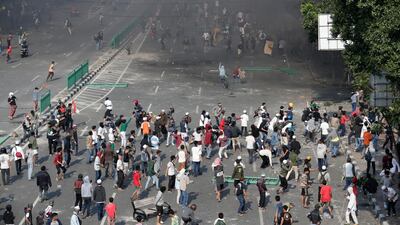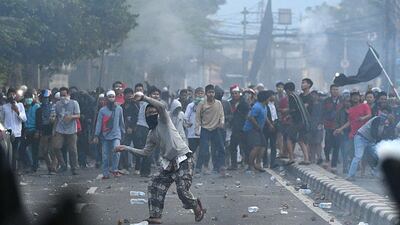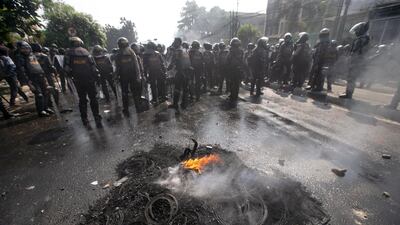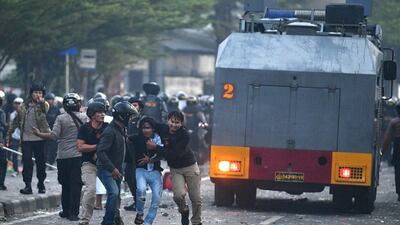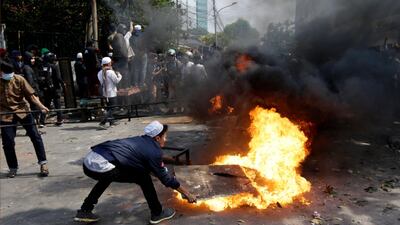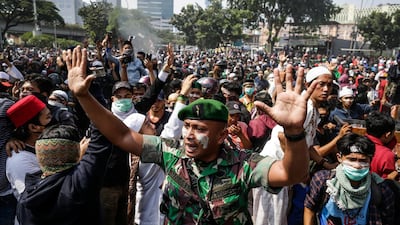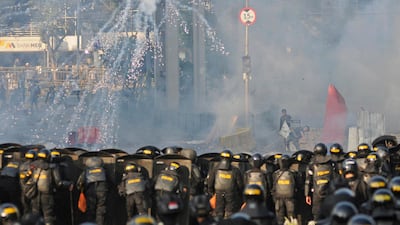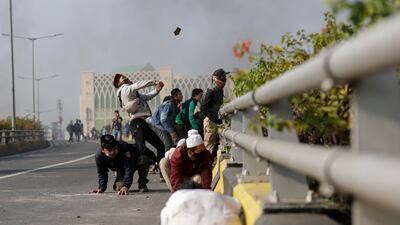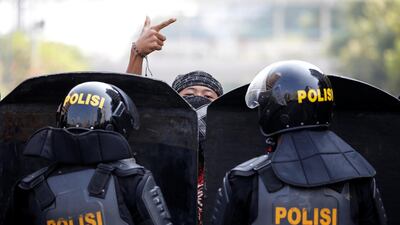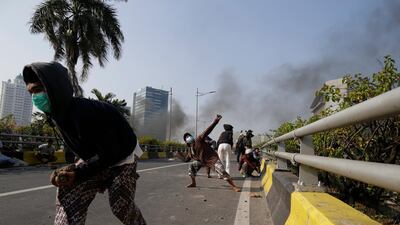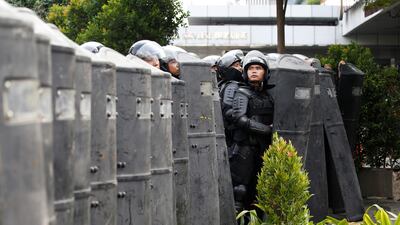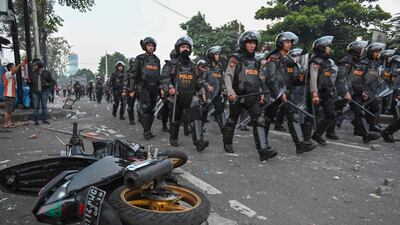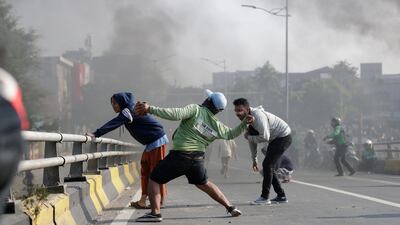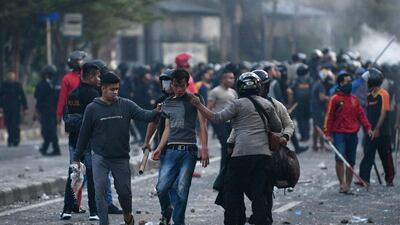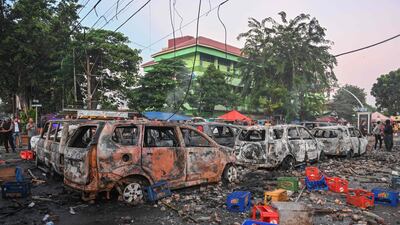Six people died and 200 were wounded in the Indonesian capital during civil unrest that has wracked Jakarta since incumbent Joko Widodo was declared the winner of the April presidential election.
Authorities are investigating the causes of death and are not ruling out the involvement of third parties acting as provocateurs, police chief Tito Karnavian said at a news conference.
He said police have evidence that showed the victims were hit by bullets and blunt objects.
Hundreds of supporters of Mr Widodo's adversary, Subianto Prabowo, protested against the results of the election. Protesters were in a stand-off with police in Jakarta on Wednesday after Tuesday night's violence.
While the demonstrations initially were peaceful, violence spread on Tuesday evening.
Protesters attempted to storm a police station. Several vehicles and a paramilitary police dormitory were set on fire.
Police used teargas, rubber bullets and water cannon to fight protesters wielding Molotov cocktails, according to the Associated Press.
Police spokesman Dedi Prasetyo said forces on the ground, including military personnel, were not armed with live ammunition.
But Fadli Zon, deputy chairman of the losing political party, said he found 171 bullets, including live rounds, upon his visit to the area on Wednesday morning.
Mr Zon accused the police of initiating an attack on protesters.
"The public have a right to demonstrate. They are people who are concerned by cheating. They are not mobilised, paid or facilitated," Mr Zon said.
Police, which have been placed on the highest security alert nationwide until May 25, suggested the violence was planned. Inspector General Mohammed Iqbal told media at national police headquarters that "the event this morning was not a spontaneous mass event but an event by design". He said 58 instigators of violence were arrested.
The government said it restricted access to social media to quell fears and stop the spread of fake news.
Mr Prabowo announced he was contesting the election results and filing a legal challenge, citing fraud. But a supervisory election agency has found no evidence to suggest systematic cheating, and confirmed a free and fair election.
Mr Prabowo, representative of the Gerinda party, is the former son-in-law of former dictator Suharto. Mr Suharto’s fall in 1998 initiated a wave of reforms.
Mr Prabowo’s campaign was fear-based. It highlighted Indonesia’s vulnerabilities, including the growing concern of exploitation by foreign powers. He dominated in conservative provinces, specifically those governed under Sharia.
Although his supporters had high hopes for the former special forces general, he consistently trailed behind Mr Widodo in polls.
On the campaign trail, Mr Widodo touted promises of a declining poverty rate and a focus on the country’s infrastructure – new public transit, ports, toll roads and airports.
The incumbent’s political career began in 2005 when he became mayor of Surakarta. In 2012, he was elected governor of Jakarta. He is known for pushing transparency and challenging corruption.
In 2014, Mr Widodo ran for president and beat out Mr Prabowo for the first time. Similar to the 2019 election, Mr Prabowo disputed the election results and refused to concede. After several weeks, he withdrew and Mr Widodo took the presidency.
Mr Widodo’s second five-term is expected to begin on October 20.
